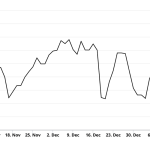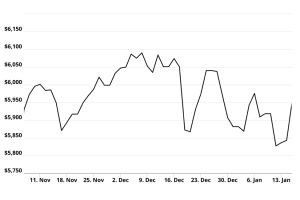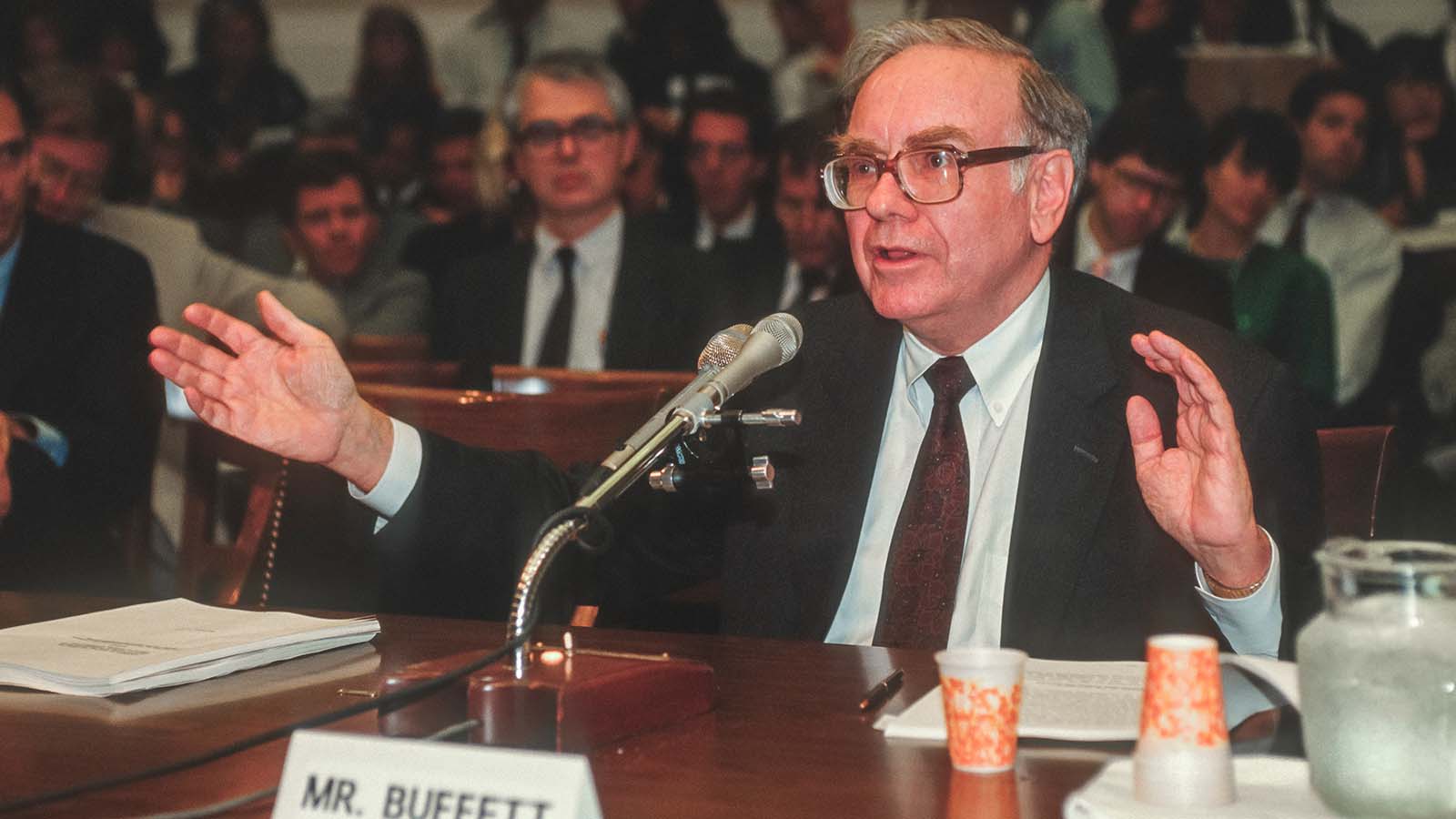
We know Warren Buffett likes to make big bets on business. Apple (NASDAQ:AAPL) is famously one of the largest Warren Buffett stocks, accounting for nearly one-half of Berkshire Hathaway’s (NYSE:BRK-A, NYSE:BRK-B) holdings. But what’s less known is that the Oracle of Omaha prefers to buy businesses outright.
Buffett points out that buying a piece of a company through stock purchases is essentially the same thing because you are still part owner of the business. Owning the whole thing, however, means he has a greater say in the company’s capital allocation. Buffet has a four-point plan when buying a business. It must:
- Be a business he understands
- Have good, long-term growth prospects
- Have a solid management team
- Be offered at an attractive price
Among the businesses Buffett owns outright through Berkshire are Dairy Queen, GEICO, BNSF Railway and NetJets.
These are the same fundamentals he says investors should look for when buying stock. He believes investors have an advantage because the stock market possesses a larger universe of businesses to choose from and offers greater opportunities for finding discounts. But there are some stocks Berkshire Hathaway owns that are a middle ground from completely owning the company and having a share in their growth potential. The following Warren Buffett stocks are ones he owns at least 25% of.
Occidental Petroleum (OXY)
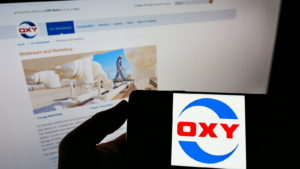
Oil and gas producer Occidental Petroleum (NYSE:OXY) is a relatively recent addition to Warren Buffett stocks. Berkshire Hathaway started accumulating shares in the exploration and production (E&P) stock in March 2022 and except for a brief pause last summer, he hasn’t stopped.
Occidental now accounts for 4.4% of Berkshire’s total value. However, the 224.1 million shares worth $2.95 billion at current prices represent 25.3% of the oil company’s outstanding shares. The Oracle has permission from the Securities & Exchange Commission (SEC) to buy as much as 50% of Occidental’s shares. Buffett also owns $10 billion worth of OXY preferred stock.
Buffett doesn’t think we’re anywhere near peak oil. Demand for fossil fuels remains large and growing. Occidental’s position in the Permian Basin means the oil company has strategic importance in the country’s biggest oil region. According to the Federal Reserve, the Permian is responsible for 40% of all U.S. oil production. It’s why Exxon Mobil (NYSE:XOM) just agreed to buy Pioneer Natural Resources (NYSE:PXD) for $59 billion.
As Buffett put it, buying Occidental is “a bet on the fact that the Permian Basin is what it is cracked up to be.” But it likely also has to do with the E&P play paying a generous dividend. Although the common shares yield just 1% annually, the preferred stock yields 8% giving Berkshire Hathaway around $960 million in annual income.
Kraft Heinz (KHC)
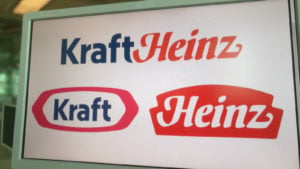
Packaged foods leader Kraft Heinz (NYSE:KHC) is another stock that is one of Berkshire Hathaway’s biggest bets, but still only represents about 3% of the portfolio’s total value. Buffett’s total stake in the ketchup maker, however, makes him its biggest investor. Berkshire owns 26.5% of the outstanding stock, or 325.6 million shares worth $10.2 billion. It’s also one of the only Warren Buffett stocks that the Oracle of Omaha believes was a mistake.
Buffett and private equity firm 3G Capital Management paid $23.3 billion for H.J. Heinz in 2013. Each put in $4.4 billion, but Buffett also spent an additional $8 billion to acquire its 9% preferred stock (I’m sensing a theme here). The two companies then orchestrated the Heinz takeover of Kraft Foods two years later for $49 billion.
Where Buffett felt as though the Heinz deal was a good one, he says he overestimated Kraft. He told CNBC in 2019 that although the combined company is still “a wonderful business,” he misjudged various operations. “We overpaid for Kraft.”
Earlier this year Kraft Heinz agreed to pay investors $450 million related to the merger. The settlement makes it one of the 100 largest class-action lawsuits of all time. It paid an additional $62 million to the SEC for similar allegations of misconduct.
Shares of Kraft Heinz are down almost 24% year to date. While the stock goes for just 10 times next year’s earnings estimates and a fraction of its book value, it still trades at more than twice sales, and earnings growth for the next five years is only forecast to expand 5% annually. Buffett, though, has said he has no intention of ever selling his Kraft Heinz stock.
DaVita (DVA)

Where Apple is Berkshire’s number 1 holding, Buffett actually owns more of kidney dialysis specialist DaVita (NYSE:DVA) than any other company. The 36 million shares worth $2.95 billion equate to a massive 39.5% stake in the business.
There’s a good chance, however, that Buffett isn’t the one who bought DaVita for Berkshire. It’s likely Ted Weschler, one of his portfolio managers, who initiated and then increased Berkshire Hathaway’s stake. Weschler reportedly owned the stock through his Peninsula Capital Advisors hedge fund between 2003 and 2011. That’s when he was hired at Berkshire and also marks the first time Berkshire owned DaVita stock. It’s easy to see why he likes it.
DaVita is one of the two largest dialysis centers in the U.S. It generates 91% of its revenue from dialysis and two-thirds of its operating profits. DaVita serves around 200,000 patients a year, giving it a 36% share of the market.
On the surface, compared to other Warren Buffett stocks, this option looks cheap. Shares trade for 10 times estimates, a fraction of sales, and a bargain basement 5 times the free cash flow it produces. However, the dialysis center is also heavily in debt. It has $8.6 billion in long-term debt and $2.4 billion in operating leases compared to just $340 million in cash, equivalents and short-term investments. In this high-interest rate environment, DaVita’s debt service is going to be much more expensive.
While shares are up 5% year to date, they’re down over 40% from 2021 highs. I’m not sure we’ll see Berkshire Hathaway adding to its position even at these seemingly discounted levels.
On the date of publication, Rich Duprey held a LONG position in XOM stock. The opinions expressed in this article are those of the writer, subject to the InvestorPlace.com Publishing Guidelines.

